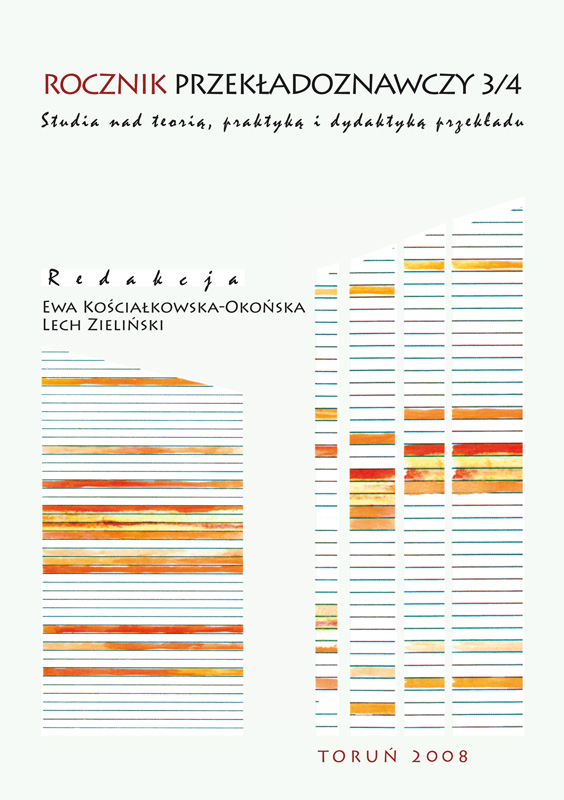W poszukiwaniu normy? Problematyka kształcenia tłumaczy przysięgłych a Kodeks tłumacza
DOI:
https://doi.org/10.12775/RP.2008.019Słowa kluczowe
tłumacz przysięgły, metodyka przekładuAbstrakt
Artykuł przedstawia w skrócie uwarunkowania prawne dotyczące nadawania uprawnień tłumacza przysięgłego, by następnie w oparciu o analizę przeprowadzonych przez autorkę badań empirycznych omówić motywację, jaką kierują się przyszli adepci tego zawodu oraz ich oczekiwania od kursów specjalistycznych kształcących w zakresie tłumaczeń poświadczonych. Celem badań była analiza i ocena procesu dydaktycznego.
Bibliografia
Kierzkowska, D. (red), 2005, Kodeks tłumacza przysięgłego, Warszawa.
Kierzkowska, D., 1991, Kodeks tłumacza sądowego, Warszawa.
Tryuk, M., 2006, Przekład ustny środowiskowy, Warszawa.
Jopek-Bosiacka, A., 2006, Przekład prawny i sądowy, Warszawa.
Dąmbska-Prokop, U., 2000, Mała Encyklopedia Przekładoznawstwa, Częstochowa.
Toury, G., 1995, Descriptive Translation Studies and Beyond, Amsterdam.
European Master’s in Translation, http://ec.europa.eu/dgs/translation/external_ relations/universities/master_curriculum_en.pdf (dostęp 05.05.2007).
Pobrania
Opublikowane
Numer
Dział
Statystyki
Liczba wyświetleń i pobrań: 719
Liczba cytowań: 0



